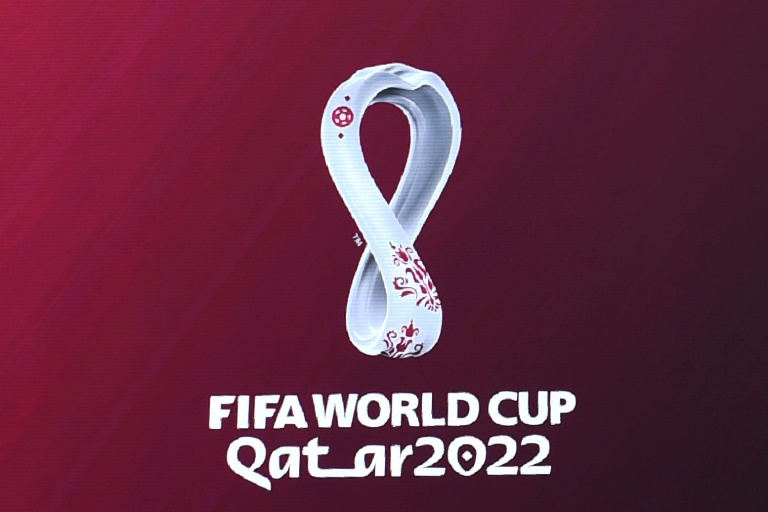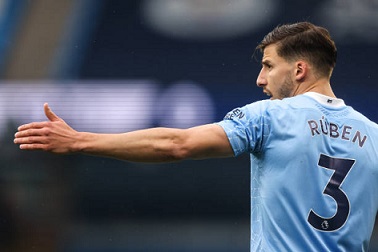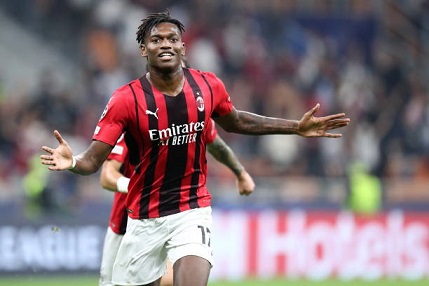 Can Santos harness the UEFA Nations League as a catalyst for Portugal's World Cup campaign?
Can Santos harness the UEFA Nations League as a catalyst for Portugal's World Cup campaign?
The emotionally wrenching and unsavory business of qualification behind us, to what now should we devote our anxiety? The eternal question for Seleção supporters, is it not? But perhaps this go-around there is not so very much about which to be concerned?
A group stage draw of Uruguay, South Korea, and Ghana surely must be considered a rather delightful trio compared with those Groups of Death to which Portugal have been assigned in years past.
Alas, sadly, there can be no respite for the predictably morose and cynical following, can there? Portugal were lucky in the qualification playoffs, especially against Turkey.
Mercifully for us all, six months and six matches separate Portugal from the crucible of the World Cup group stage. Attention turns to the UEFA Nations League, an opportunity so essential to this squad’s ambitions at the main event later this year.
And what a spectacle it will be! Not only do we bid hopefully fond farewell to Portugal’s most successful manager, not only do we clash with Paulo Bento’s South Korea, but we cherish the hallowed occasion as three of the greatest to ever wear our colors play their final World Cup. When Moutinho, Pepe, and Ronaldo step off the pitch in Qatar for the last time, regardless how Portugal finish, so departs the heart, soul, and strength of Portugal’s most iconic generation of players. Remove these three, and the historical account of this nation’s struggle for footballing legitimacy is unrecognizable from its present condition.
They write the final chapter of their World Cup legacies, and very possibly their international careers, as legends, demigods of Portuguese football lore, let the paean be written, the tears and poetry spill; the sojourn of three football immortals concludes. How blessed was this fortune bestowed that we beheld the unforgettable theatre they routinely staged over the better part of 15 years?
To even attempt honoring their storied careers with a proper send off, there is much to do. Defense, midfield, all is out of sorts. How fortuitous, then, Portugal begin a genuinely competitive mini-tournament. The chance to forge the backbone of what we all hope becomes a World Cup-winning side.
All due respect to the Nations League, in its own right a compelling and momentous affair, these 6 matches are our rehearsal for the World Cup. Having fought so hard to get to Qatar, and with significant turnover likely to take place in the squad thereafter, this World Cup means just that much more.
Where even do we begin?
1. Centreback depth is our sine qua non
We cannot mount a serious challenge at this World Cup without readying at least one new centreback. This can has been well and truly kicked down the road for far too long. Against Turkey in March, Fonte and Danilo’s centreback partnership exposed how concerning our predicament is whenever Dias or Pepe are absent. At Euro 2016, Portugal needed all four CBs at different stages. If Portugal make a deep run in Qatar, we cannot expect both or any of our preferred CBs to be available for every match, especially Pepe.
As I see it, there is some good news and some bad news.
Santos elected well to assemble our strongest defence minus Dias, who is injured. David Carmo, Goncalo Inácio, Tiago Djaló, and Domingos Duarte all had involved club campaigns, and all save Carmo have been called up to the senior side previously. But only Duarte has been capped. Time being of the essence, it is impractical to grant every candidate a significant opportunity while giving Pepe and eventually Dias reps as well. Djaló and Inácio, therefore, were dropped to the U21 side. More on that later.
To replace Pepe, for example, is to replace the asymmetrical advantage he creates with his ability to bring the ball out of defense, a skill which alleviates stress on an already beleaguered midfield. We need a positionally-astute defender, not just someone strong in the tackle, and a defender who distributes well from deep can drag the opposition press out of shape.
But this is all a lot to ask of a young centreback, isn’t it? Who among our eligible cadre can deliver all or even some of these attributes?
 Statistical analysis, within certain limitations, illuminates how each player approaches the game. When we contrast these tendencies with actual requirements, a better visual for how each player might benefit this squad emerges.
Statistical analysis, within certain limitations, illuminates how each player approaches the game. When we contrast these tendencies with actual requirements, a better visual for how each player might benefit this squad emerges.
Looking at distribution, there are several interesting findings. Statistically, Rúben Dias is highest-rated across the full battery of passing metrics, but it is important to remember he plays for Pep Guardiola’s Manchester City which grossly skews the numbers in his favor.
Both Pepe and Rúben Dias are fairly well-rounded passers. Relative to other CBs in top Europe’s top-five leagues, they deliver a high number of key passes p90 and both attempt a high number of passes longer than 30 yards with decent success. While David Carmo exceeded them both – and every other CB in this particular discussion - in key passes p90, his general passing metrics are uninspiring.
Of the four candidates mentioned above, Tiago Djaló was better-rated in nearly every passing category available.
Djaló is also much more involved in outfield play, registering more touches and carries p90, but I am sure others would like to know how these guys actually defend. Here we find the bad news: statistics do not paint a rosy portrait for any one defender. Carmo is a clearance specialist, but his tackling and pressing is mediocre; Inácio blocks shots well, but is bang average when attempting to dispossess an opposition dribbler; Djaló is the best-rounded of the bunch, a far better tackler and more likely to press yet he is unexceptional at blocks and interceptions – read, he is not planted along the back four disrupting passes and deflecting shots.
But I believe this squad needs more than a static defender who is tough to dribble around. Rúben Dias’ defensive metrics are not the stuff of legend either. We need a competent, involved centreback with the confidence to take risks – with an appreciable rate of success.
In my opinion, 22 yr old Tiago Djaló deserved first opportunity to prove himself. Some may be more interested in overall team impact and under-awed by Lille’s mid-table finish, but I am more concerned with how well a defender creates asymmetric advantage - how well he uses the ball in each facet of the game.
Of all our CBs, Djaló is most likely to out-dribble opponents - a sign of great confidence in such a young player - distributes more frequently and with better effect, and is defensively proficient enough to anticipate long-term development potential. He has Champions League experience, seems physically durable, and demonstrates his versatility for Lille by stepping in at fullback when required. He benefits from Jose Fonte’s leadership and regularly plays alongside Renato Sanches as well.
In summary, Fernando Santos missed another trick not calling up Djaló for the June matches. Why not drop William and register Danilo as a defensive midfielder to make space? Duarte is very poor statistically and has not significantly improved from last season for now-relegated Granada. In contrast, Djaló had a very good season and by calling up Danilo as a CB, Santos deprived yet another emerging talent a key opportunity to establish himself before the World Cup.
Carmo may yet prove as essential to these proceedings as he was to Braga upon his return from long-term injury, and he will certainly amplify our set piece defence. But how well can he replace Pepe? His metrics do not suggest he can. We need a defender who is functionally and technically adept to do more than survive wave after wave of attack.
2. Creativity
While depth at centreback is Portugal’s ultimate constraint at this World Cup, the creative engine stutters capriciously, ultra-sensitive to even subtle perturbations in our preferred XI. Bruno’s fine outing against North Macedonia notwithstanding, the aggregate effect of his inclusion alongside Bernardo Silva, Moutinho, Renato Sanches and others remains a riddle unsolved, in my humble opinion.
To be clear, as of this very moment my preferred midfield is Pahlinha, Renato Sanches, Bernardo Silva – and Bruno Fernandes. Our very first UNL match against Spain will ask very hard questions of whomever Santos fields in the center of the pitch. He would do well to gather and carefully implement solutions to the problems which Spain will undoubtedly reveal.
There are good forwards in this squad, the problem is translating defence into attack. There are far too few chances created. A change in formation is unlikely, or I would suggest pressing Nuno Mendes and João Cancelo more into the attack in a 3-5-2 or 3-4-3. No, the innovative cure must be derived in some variant of a 4-4-2. The instinct then is to demand Vitinha or Ricardo Horta, but I suspect Portugal’s last two matches partially lifted the veil concealing what must be our creative plan in the days ahead.
I have written before that Renato Sanches is the metronome our midfield lacks. Yet in Renato Sanches’ absence, Otávio and Matheus Nunes have breathed life into Portugal’s creative symphony before, and they did so not by weaving neat passes through the lines, or with delicately chipped lobs over the defence. Their toughness and dynamic running opened seams which others exploited. It does not hurt they have also contributed as many goals as João Félix in far less opportunities, but these Nations League matches need to explore these findings more completely, without bias.
Vitinha and Horta need a workout too, especially the latter, but this midfield seems to benefit from a certain reckless abandon and disruptive vigor. Flair and finesse are worshiped to the extent that certain players may be deemed more valuable whether they can deliver the goods or not. Sometimes all you need is blunt force, and maybe just a dab of existential rage.
If Matheus and Otávio are more potent in aggregate than more heralded players like Renato, Bruno Fernandes, and Bernardo Silva…let it be.
 3. Much ado about Leão
3. Much ado about Leão
While argument rightly festers over which of Diogo Jota or João Félix is better-suited as a support striker, Rafael Leão is in scintillating form and is due his opportunity. The soon-to-be 23 yr old has become renowned for his direct approach, one of the top dribblers in Europe this season, but goalscoring acumen has markedly improved. Even so, the urgency to evaluate his potential has risen to a fever pitch yet he, too, is a risky investment. His 1-v-1 ability Portugal lack, but his link-up play is quite raw - as reflected in his passing metrics - and he relies more on raw pace than good combination play.
An unpopular take right now – Leão’s statistical profile is that of an impact substitution, not a starter. Not yet at least.
Football is a game-state sport meaning the nature of a match pivots vigorously about specific occurrences. For example, when a team concedes early, the nature of the match dramatically shifts for both teams, and very different tactical responses must follow - or else. Leão will not simply be free to run at the backline unless the present game-state requires that. For much of the match, he will need to exercise patience in build-up play, assist defensively, drop into midfield to collect passes, and other tasks which in my opinion may distract him from what he does best: out-dueling beleaguered defenders on the dribble and creating chaos with his speed. Employing Leão as a substitute optimizes his effect by harmonizing his primary skills with the present game-state - one in which we specifically require an attacking outburst.
Should he at least be given the starting role to see what he does with it? Unequivocally, yes. But as a supporter community there are several recent examples of bias for lavishly skillful young players which should serve as a warning. Granted, the player I have in mind, João Félix, was still a teenager when he was thrown into the first team, and we all know how that went. Leão is almost 23 so in many ways he represents the wise departure from the status quo I and many others have often recommended for young players – take the extra couple years to develop and become better established at club level, working incrementally toward international success. Talent aside, it may be because he’s been forced to wait these extra years that Leão ultimately surpasses all expectations set for his predecessors.
But those expectations…..that is where the reader would do well to consider how unlikely it is Leão strides onto the scene with resounding success over these UNL matches. A baptism of fire is far more likely, and it’s nothing against Leão himself. This entire squad has underachieved for years, and nearly every individual save Cristiano, Pepe and a few others escaped these effects. Leão, too, will experience difficulties in adaptation, and all of us should be anticipating his contribution one of gradual acclimation versus a thunderbolt from heaven. Just do not misunderstand me - how we get the most from a player with the talent of Rafael Leão is absolutely paramount.
I could go on, we all could. This side is bursting with unfulfilled promise - current champions in league’s across Europe, tomorrow’s headliners, and the best to ever play the game. There is such hope.
And there is Fernando Santos - with one more opportunity to get it right before it is all said and done. Several years of lethargy….and six matches to transform Portugal’s fate.
Am I having delusions of grandeur, or is there an epic finale in store? Get here, November.
Força Seleção.
by Nathan Motz

